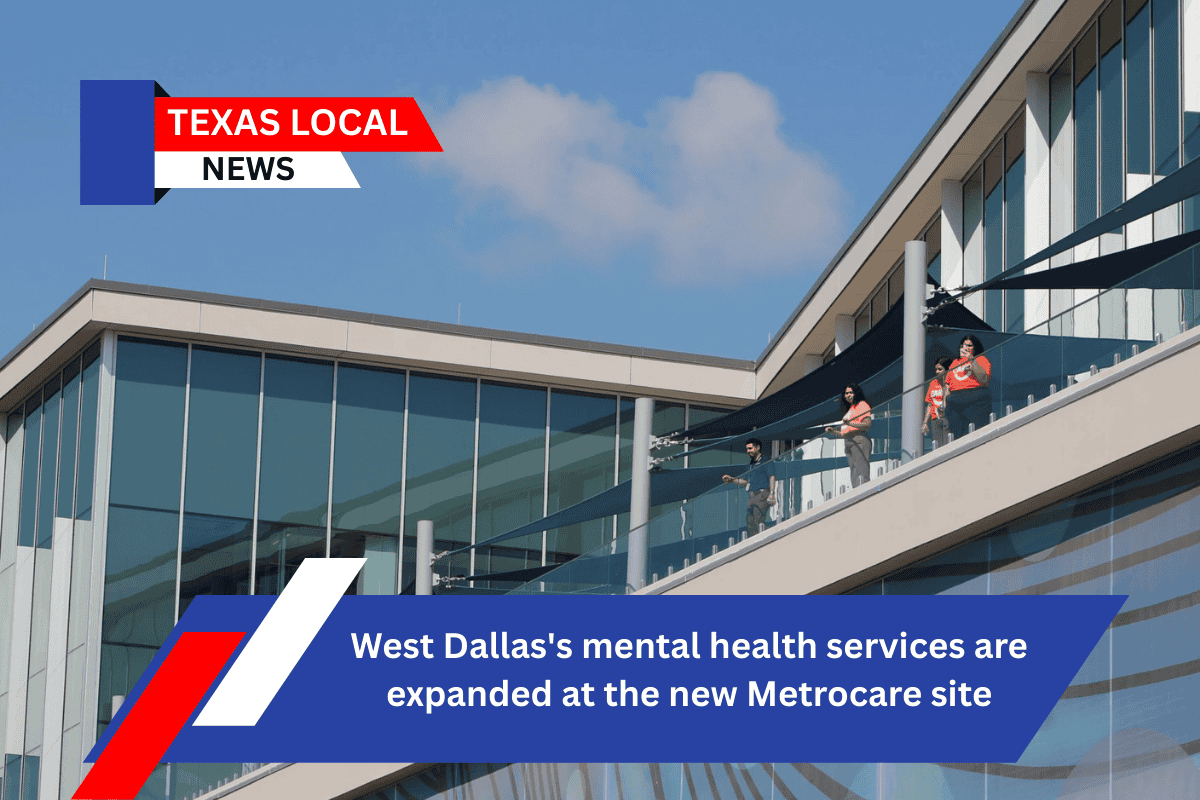The largest community mental health provider in North Texas is expanding its services to West Dallas.
On Thursday, Metrocare opened its new $96 million campus in the Hillside neighborhood, near I-30 and Westmoreland Road.
The Mental Health and Disability Innovation Center is estimated to boost Metrocare’s capacity to serve by about 25%. The organization is Dallas County’s principal behavioral health care provider, serving over 50,000 children and adults each year.
Dr. John Burruss, Metrocare’s CEO, stated that the campus is a crucial investment in a health-care sector that is becoming a major public health concern. Metrocare has inaugurated its second new location this year.
“One of the few areas of medicine that’s going backwards, that’s not making great success is mental health care,” Burruss pointed out. “We must be ready as a society to begin to investigate why.
If you advise people, ‘Don’t be upset about it; go get help,’ you must aid them. If you say, ‘Overcome the stigma to obtain aid,’ we must provide an open door for them to walk through.”
The facility is anticipated to open to the public within a month. It has a 45,000-square-foot clinical space and a 98,000-square-foot client service area.
“This will revolutionize the way we address [mental health] issues, particularly for people who don’t have many assets in life, who don’t have the education or the background in mental health that helps them move forward by themselves,” according to Burruss. “We’re also going to deliver services that are educationally based.”
The client services area will expand Metrocare’s ability to teach and train clinicians, as well as develop initiatives to address mental health issues throughout the county.
The clinical area is divided into three separate clinics to assist patients of all ages.
The Early Child Intervention Services and Behavioral Treatment Center enables Metrocare to provide unified services for children with intellectual challenges and mental health difficulties that it was unable to provide in prior locations.
“They’ll be in the same building,” Burruss explained. “They will traverse the same halls. The treatment providers will be at the same location.
According to him, the campus expands the resources available to physicians in treatment, including a therapeutic playground.
“When you’re a kid, your job is to play and learn,” Burruss remarked. “We need … an environment where they can play and learn while we’re helping them progress.”
The area also houses the children and adolescent clinic, which treats children aged three to eighteen.
Regina Walker, Metrocare’s director of Child and Adolescent Services, stated that the agency will provide specialized care, such as complicated trauma treatment.
The facility also has an adult services clinic for people over the age of 18, an on-site pharmacy to make medications more accessible, and community-based service clinicians.
“They go out in the community and meet them in community-based locations and service them in schools, churches, homes, and provide clinical services there as well,” she told me.
Walker joined Metrocare 14 years ago as a provider. She said it’s been heartbreaking to see the organization work on projects like the Hillside campus.
“It’s just an awesome thing to see how we have transformed as an agency,” Walker told me. “And how we are really pushing and striving to meet the needs of the community, fill service gaps and provide services to those individuals.”
Providers and experts believe that now is an especially essential time to fulfill these requirements. Burruss said there is a lot of uncertainty affecting the health care business and patients as a result of budget cuts to important programs like Medicaid and changes in state and federal policies.
That unpredictability is something mental health providers must consider while offering assistance.
“That breeds the climate in which people struggle with depression, anxiety, drinking too much, using too many illicit drugs,” Burruss continued. “These are the people we want to aid. Even in the face of uncertainty, we will present them with an open door.
The campus’s purpose is to help Metrocare achieve its goal of effective intervention by offering a place for people to go, either virtually or by walking into the building, he added.
“We have effective services, but the biggest limits has been people being able to get them,” Burruss told reporters. “Metrocare addresses a need that few others do since we will see folks today. We meet folks on the same day. If you’ve realized you really need our support, all you have to do now is show up.”
Walker believes that the Mental Health and Disability Innovation Center is valuable because it provides a venue for all members of a family to get care.
“Mental health services are for everyone,” Walker stated. “Everyone would benefit from mental health treatments. There is no age, gender, or specific person who satisfies the requirements for the service.”
